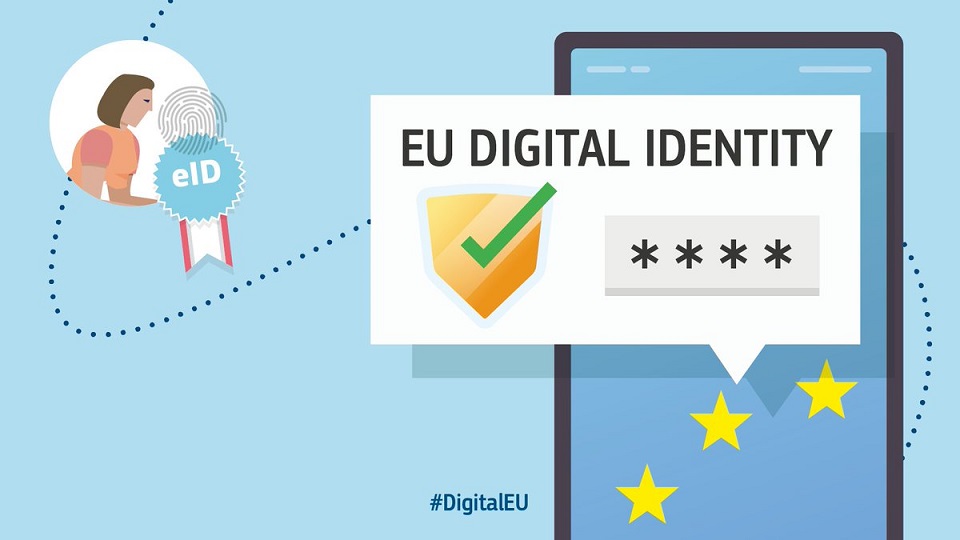
The European Union’s Digital Identity Regulation has now officially come into force, setting the stage for the EU Digital Identity Wallet, expected to be available by 2026.
The regulation establishes a legal framework for digital identities, ensuring they are recognized and trusted across all EU member states. The EU Digital Identity Wallet will enable EU citizens to store and manage various identification documents, such as IDs, driver’s licenses, and bank account details, in one digital platform. By 2026, this wallet will enable users to prove their identity and access services online and offline across the EU without needing physical documents—all they’ll have to do is show their virtual ID on their smartphone.
Thanks to the Regulation, European Union member states will be mandated to offer a digital wallet application to their citizens. A “Wallet Provider” will be tasked with building the digital ID application itself, while official Digital ID Issuers will be tasked with provisioning the digital documents to the app.
These documents can be either “Qualified” documents – official government docs like driver’s licenses and social security cards – or “non-Qualified” documents such as train tickets and gym memberships.
“Service Providers”, also known as “Relying Parties”, will be able to request citizens’ digital IDs for identity verification. Various institutions are encompassed in the Relying Party category, including everything from banks to universities to pharmacies. For example, if a citizen were trying to open a new bank account, they could present their mobile ID, and the bank, as a Service Provider, would be able to authenticate it, verifying that the customer is who they claim to be.
The open-source nature of the wallet, which is built on a modular architecture with reusable components, is meant to foster collaboration and to enhance security and adaptability across various projects.
In 2022 the Digital Europe Program — an EU funding programme focused on bringing digital technology to businesses, citizens and public administrations — put out a call to launch pilot projects for the EU Digital Identity Wallet. Four Large Scale Pilot projects began in April 2023.
In 2022 the Digital Europe Program — an EU funding programme focused on bringing digital technology to businesses, citizens and public administrations — put out a call to launch pilot projects for the EU Digital Identity Wallet. Four Large Scale Pilot projects began in April 2023.
POTENTIAL aims to foster innovation, collaboration and growth in six digital identity sectors — governmental services, banking, telecommunications, mobile driving licenses, electronic signatures, and health.
The EU Digital Wallet Consortium (EWC) is a joint effort to successfully leverage the benefits of the proposed EU digital identity in the form of Digital Travel Credentials across the Member States. The EWC intends to build on the reference wallet application to enable a use case focused on Digital Travel Credentials.
Digital Credentials for Europe (DC4EU) provides tangible support to the public and private sectors in the educational and social security sectors by deploying and accessing state-of-the-art trans-European interoperable digital service infrastructures and their integration in a cross-border trust framework.
NOBID is a set of Nordic and Baltic countries who, together with Italy and Germany, will pilot the use of the EU Digital Identity Wallet for the authorisation of payments for products and services by the wallet user.
Source: European Commission
Banking 4.0 – „how was the experience for you”
„To be honest I think that Sinaia, your conference, is much better then Davos.”
Many more interesting quotes in the video below: